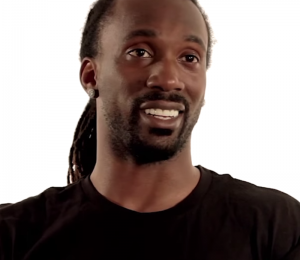
By Domenic Ruso | December 8, 2016
It seems to me that something strange is going on. The present state of our culture has caused many of us, especially Christians, to forget the urgent and essential biblical practice of unity.
I’ve wondered for some time, “When did I stop caring about unity as expressed in the story of the Gospel?” or “How did this formative message that Jesus anchors his whole ministry on get minimized in my heart and mind?”
How about you? When did we stop caring about Christian unity?
For me, part of this began when I failed to see and admit the destructive nature of disunity. Disunity is one of the most painful experiences you can face. We often don’t realize it, but some of the most caustic human emotions require disunity to stay alive. For instance, gossip finds wings on the back of disunity. Likewise, anger turns to rage when ongoing disunity remains unchecked.
As a pastor I have seen disunity divide a church, destroy friendships, and most of all, leave any onlooker confused as to how those who find their identity around a table that celebrates common-union have stopped caring about the foundational biblical command to seek unity.
Beyond a definition
Whenever I reflect on this issue of unity I am reminded of how difficult, complicated, and elusive it is to talk about it. Does it mean we all just pretend to get along? Does it mean we minimize diversity?
For some of my friends unity seems like a fairytale ideal. Others see it as a concept that minimizes the truth and authority of scripture for some muddled, get-along-version of Christianity.
While some of these points are valid, I think it is a most grievous sin to let the challenges in achieving unity cause us to stop seeking its essential role in the story of the gospel. Also, anytime the gospel of Jesus is faithfully expressed unity is always close at hand.
For this reason I think we are wise to return to what Jesus says about unity to help us avoid the laissez-faire attitude that has led us to a place where we just don’t’ care about unity anymore.
Jesus in a world of disunity
Over the past few weeks, as I’ve tried to make sense of my own emotional distress around the disunity in our culture and churches, I’ve returned to one of the most important prayers on the issue of unity.
Jesus lived in a culture filled with a form of religious division and cultural disunity which bordered on destructiveness. When we understand the seriousness of this reality we can appreciate how radical and counter-cultural his command for unity really was.
One of the ways Jesus started to address the disunity during his public ministry was by giving people a renewed vision of a God who wants to be united with people. It was a regular part of Jesus’s leadership style to model time away to get reunited with God through prayer and solitude.
This was not just an early example of emotional and spiritual intelligence. In fact, these times of prayer were his earliest example of what unity with God as a loving Father meant for his mission.
Beyond praying for unity
As his earthly mission was coming to an end, John’s Gospel notes that Jesus went to pray. In that prayer he said,
“For I gave them the words you gave me and they accepted them. They knew with certainty that I came from you, and they believed that you sent me.”
John 17:8
This powerful image of unity between God the Father and the Son anchors the gospel and gives it revelatory strength. The preaching of the truth as Jesus shared it was embraced as divinely initiated because of unity. In this light, our witness and experience to the truth is connected to Jesus’s commitment to unity.
This truth has never hit me so hard. If I really believe in the Gospel, I must be committed to a similar type of unity. This is not a unity that crushes difference and diversity, but a unity that makes Jesus the one that heals the hatred that often leads to disunity. In this way, to be faithful to Jesus means to wrestle against my human tendency to minimize unity.
Simply put, disunity distorts the truth of the Gospel; that God sent his Son for the restorative unity of all creation.
Years ago one of greatest thinkers and missionaries of our time could see this slow disintegration of unity in our church and in our gospel narrative. Accordingly he wrote,
“The disunity of the Church is a denial of the promise and a contradiction of the purpose for which the Church is sent into the world.” (1)
Unity for the sake of the Gospel
Jesus, as part of this prayer, reveals our tendency to stop caring about unity. We read,
“I pray also for those who will believe in me through their message, that all of them may be one, Father, just as you are in me and I am in you. May they also be in us so that the world may believe that you have sent me.
John 17:21,22
Jesus’s prayer reveals that the gospel’s power is forever linked to our commitment to unity. Being united to the Father and to each other is the anchor that gives the gospel its evangelistic thrust. I think of the divisiveness of hundreds of denominations and challenges of doctrinal debates and I feel that pain of confusion this causes.
I recently had a friend say to me, ‘Christians don’t realize how dumb they sound since they can’t even figure out what they believe, but they want others to believe in their nonsense.’
It felt like a punch in the face. But in all seriousness, if the world will ever believe that Jesus was truly sent by God, we must start caring about unity in a way we never have before.
If the Gospel matters then…
If we really care about the gospel and desire for others to experience its power, we must return to believing that Jesus’s prayer was a visionary prayer for our time. Only then will we understand that the world is in need of visionary leaders that love the gospel enough to admit that it can only take root when we care about unity that is focused on Christ the Son, because of the love of God the Father, through the power of the Spirit.
Then and only then will the gospel become believable again.
__________
- Lesslie Newbigin



